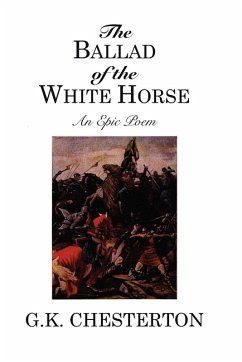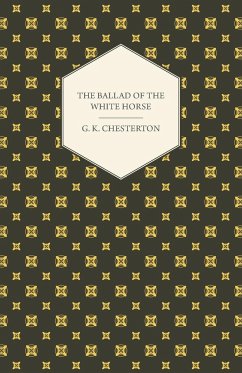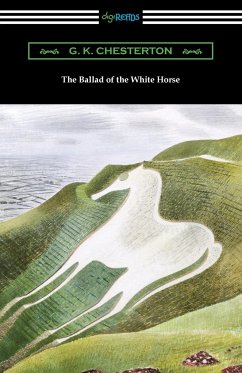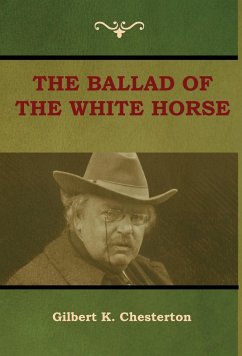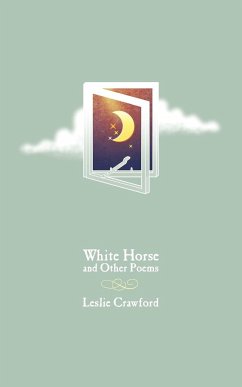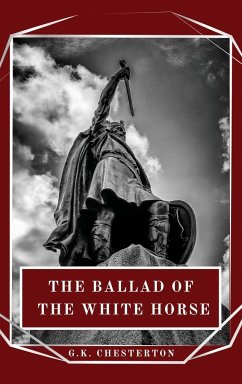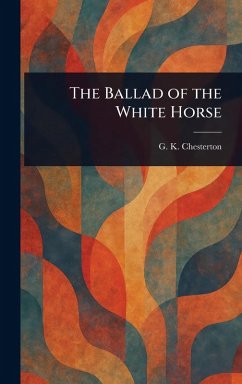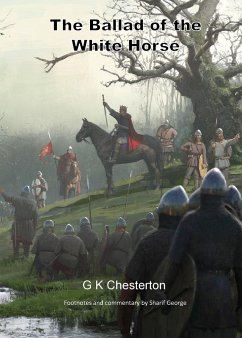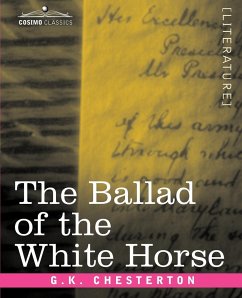
The Ballad of the White Horse
Versandkostenfrei!
Versandfertig in 1-2 Wochen
16,99 €
inkl. MwSt.

PAYBACK Punkte
8 °P sammeln!
British writer GILBERT KEITH CHESTERTON (1874-1936) expounded prolifically about his wide-ranging philosophies-he is impossible to categorize as "liberal" or "conservative," for instance-across a wide variety of avenues: he was a literary critic, historian, playwright, novelist, columnist, and poet. His witty, humorous style earned him the title of the "prince of paradox," and his works-80 books and nearly 4,000 essays-remain among the most beloved in the English language. The only work he dedicated to his wife, this may have been Chesterton's own favorite. Considered by some to be the last gr...
British writer GILBERT KEITH CHESTERTON (1874-1936) expounded prolifically about his wide-ranging philosophies-he is impossible to categorize as "liberal" or "conservative," for instance-across a wide variety of avenues: he was a literary critic, historian, playwright, novelist, columnist, and poet. His witty, humorous style earned him the title of the "prince of paradox," and his works-80 books and nearly 4,000 essays-remain among the most beloved in the English language. The only work he dedicated to his wife, this may have been Chesterton's own favorite. Considered by some to be the last great epic poem in the English language, this 1911 work sings the praises of the English king Alfred, who battled the invading Danish Vikings in AD 879. Chronicling not only a great military victory but, the cultural triumph of Christianity over paganism in the Dark Ages, this unfairly forgotten literary masterpiece will delight students of English poetry.



